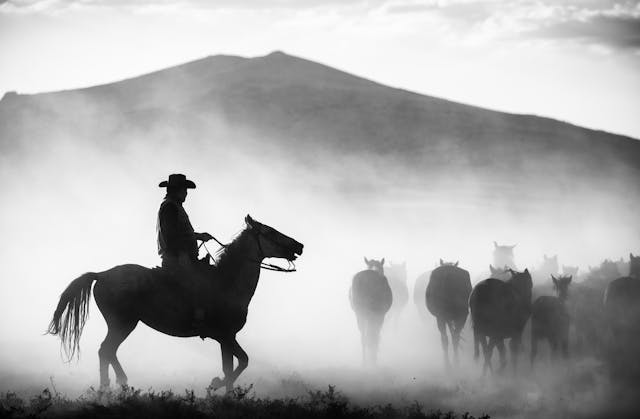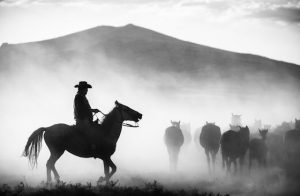Your cart is currently empty!

Outlaw Bass Reeves: Escape to Justice
The Early Life of Bass Reeves

They called me the Outlaw Bass Reeves now, a name that echoes across the dusty plains and whispers through the tallgrass. But back then, under the unforgiving Arkansas sun, I was just another piece of property owned by William Steele Reeves, a man with a fancy title and a heart colder than a snake’s belly.
The year, best I can reckon, was 1838. Don’t have no fancy papers to mark the date, just the memories etched on my skin, the ache in my bones, and the way the sun beat down on my back like a hammer blow. My earliest memories are a blur of dust, sweat, and the constant murmur of Mama’s voice, a low, soothing sound that somehow kept the darkness at bay.
We lived on a sprawling plantation, a world of endless cotton fields and the ever-present creak of the overseer’s whip. Pa was a strong man, his back broad and muscles corded like twisted rope from years of toil. Mama, she was different. There was a fire in her eyes, a quiet defiance that even the overseer couldn’t extinguish. She taught me the stories of our people, whispers of Africa and a life beyond these cotton shackles.
My days were filled with chores – fetching water, tending to the chickens, whatever small tasks a boy my age could manage. The sun was my constant companion, its heat a relentless burden. But even as a child, a spark burned within me, a yearning for something more. I watched the way the older boys worked the fields, their movements slow and resigned. I wouldn’t be like them.
Getting Noticed:
One blistering afternoon, the overseer, a cruel man named Lester, singled me out. “You, boy! Fetch me some water, quick!” I scurried to obey, the weight of the bucket a burden on my small frame. But as I neared the well, a thought struck me – a rebellion as small as a pebble thrown into a pond. I set the bucket down, its wooden rim catching the harsh sunlight.
The Escape:
Lester’s voice bellowed across the field, “Boy! What are you doing?” I didn’t answer. Instead, I turned and ran. Not a mad dash, but a steady jog, my legs pumping, fueled by a desperate hope. I ran towards the treeline, a dark green border against the endless blue sky. The crack of Lester’s whip echoed behind me, followed by the angry shouts of the other slaves.
On the Run:
But I didn’t stop. The forest swallowed me whole, the cool shade a welcome relief. Thorns snagged at my clothes, the ground uneven beneath my bare feet, but I kept going. The sound of pursuit faded, replaced by the rustle of leaves and the chirping of unseen birds.
I spent the night huddled beneath a massive oak, the hooting of owls my only companions. Fear gnawed at me, but a newfound resolve burned brighter. I wouldn’t go back.
The following days were a blur of hunger and exhaustion. I scavenged for berries, drank from cool streams, and slept hidden amongst the undergrowth. The forest became my teacher, showing me the secrets hidden beneath the leaves, the whispers carried on the wind. I learned to track deer, to read the signs left by birds, and to navigate by the stars.
At Home:
One morning, as the sun filtered through the leaves, I stumbled upon a small camp. Indians, they were, their faces painted with intricate designs, their voices filled with a language I didn’t understand. Fear threatened to consume me, but something held me back. They looked at me with curious eyes, not with the cold indifference of the overseer.
Through gestures and broken English, I managed to explain my situation. The leader of the group, a tall man with eyes as wise as the ancient trees, listened intently. He spoke to the others, their voices a low murmur. Finally, he turned back to me, a gentle smile etched on his face.
They offered me food and shelter, their kindness a balm to my soul. In their language, they called me “Cheevers,” meaning “swift runner.” I stayed with them for weeks, learning their ways, their respect for the land, and their fierce independence. They taught me to hunt with a bow and arrow, to ride a horse like an extension of myself, and to be silent as the wind.
The news of the Civil War eventually reached the camp. Whispers of freedom carried on the wind, a promise long forgotten. The war, they said, was a chance for change, a chance for men like me to fight for their own. Though the thought of bloodshed filled me with unease. They no longer called me the Outlaw Bass Reeves, which you will soon find out why.
Don’t forget to shop our store.

Leave a Reply